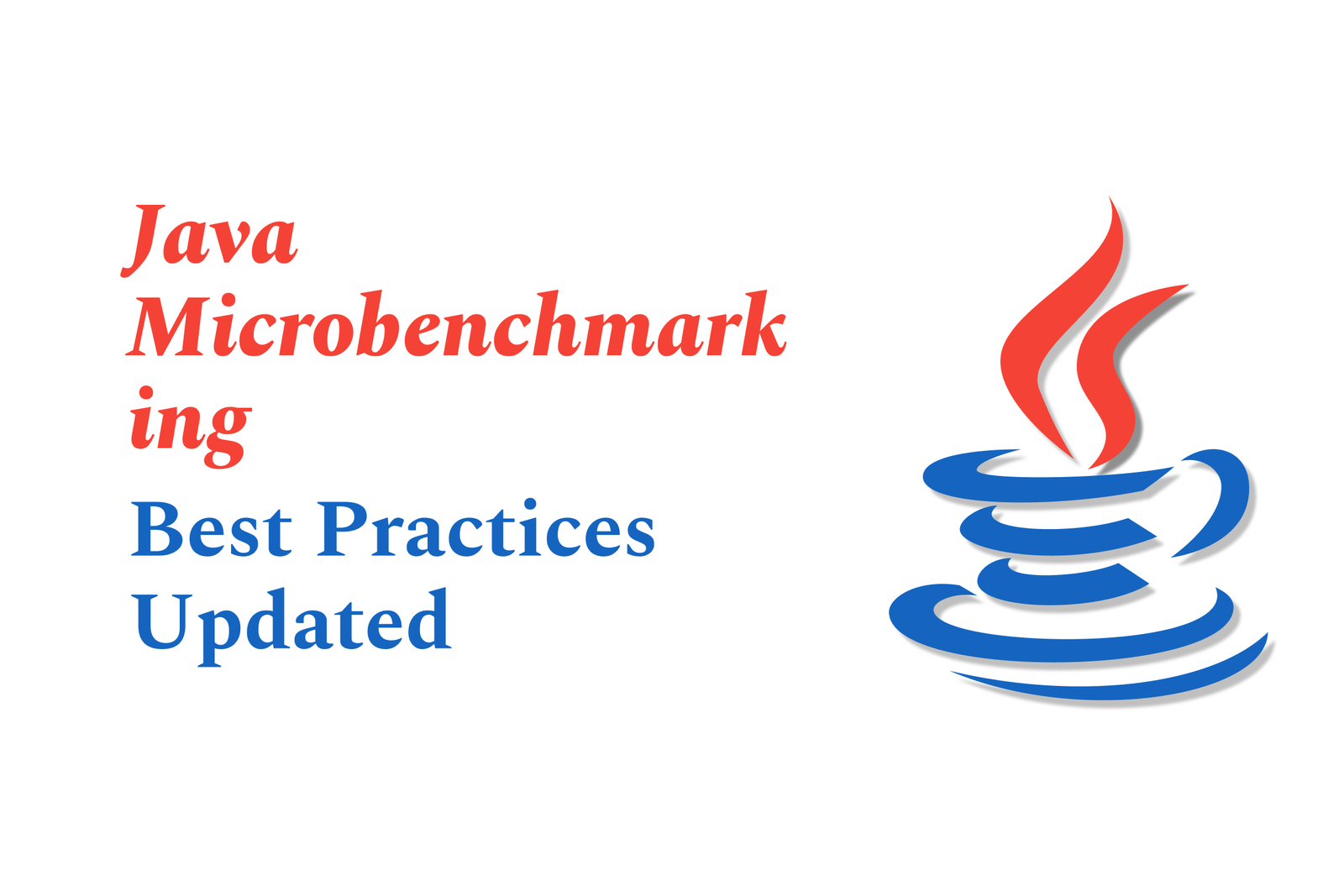Java microbenchmarking best practices updated
Java Microbenchmarking Best Practices Updated highlights using JMH to accurately measure Java code performance. It emphasizes isolating tests, warming up the JVM, and analyzing metrics like throughput and execution time for reliable, data-driven optimization of Java applications.
Java Microbenchmarking Best Practices Updated
1 ) Introduction to Java Microbenchmarking Harness (JMH)
JMH is a specialized and robust framework designed for benchmarking Java code.
It allows developers to measure performance accurately, identify bottlenecks, and optimize Java applications effectively.
Benchmarking helps compare implementations and validate performance improving changes with data driven insights.
2 ) Setting Up JMH
Add JMH as a project dependency using Maven or other build tools.
Create benchmark classes in Java that define the code sections to measure.
Run benchmarks through command line tools or build scripts targeting the compiled benchmark classes.
3 ) Running Benchmarks and Analyzing Results
JMH executes benchmarks and produces detailed metrics including:
Average execution time of operations.
Throughput (operations per unit time).
Operations per second.
Percentile distributions of execution times.
These metrics offer a comprehensive view of code performance to guide optimizations.
4 ) Best Practices for Accurate Benchmarking
Isolate benchmarks to prevent dependencies among them for reliable results.
Use clean JVM instances to avoid interference from prior executions.
Utilize state objects for managing benchmark specific data.
Include warm up iterations to stabilize JVM optimizations and obtain consistent measurements.
5 ) Advanced JMH Usage Techniques
Apply different benchmark modes suitable for the testing scenario such as throughput or average time.
Leverage JMH features to gain deeper insights and fine tune performance benchmarking.
Combine JMH data with profiling tools to comprehensively optimize Java applications.
Summary:
This updated guide highlights how to effectively use Java Microbenchmarking Harness (JMH) for precise and reliable performance measurement. By following best practices—like isolating tests, warming up the JVM, and analyzing various metrics—developers can deeply understand and improve their Java code's efficiency. Advanced techniques expand benchmarking's value, making JMH an indispensable tool for Java performance tuning.
https://justacademy.in/news-detail/swiftui-previews-in-xcode:-latest-enhancements
https://justacademy.in/news-detail/android-device-update-policies
https://justacademy.in/news-detail/building-secure-apple-pay-experiences-with-ios-19
https://justacademy.in/news-detail/javafx-latest-features-and-roadmap-for-2025
https://justacademy.in/news-detail/ios-19-beta:-what-developers-must-test-now
Related Posts
In 2025, top Angular libraries offer modern, feature-rich components and tools for building dynamic web apps. From powerful data grids to low-code platforms like UI Bakery, these libraries enhance development speed, UI design, and scalability, making them essential for Angular developers.
Migrating from AngularJS to Angular 17 involves gradually upgrading your app by running both frameworks together using tools like ngUpgrade, rewriting components in TypeScript, and adopting Angular’s modern architecture to enhance performance, maintainability, and long-term support.
Angular state management tools help organize and handle app data efficiently, improving scalability and maintainability. Popular options include NgRx for robust, RxJS-based patterns, and newer Signal Store solutions that offer simpler, reactive approaches integrated tightly with Angular’s latest features.
RxJS in Angular empowers developers to manage asynchronous data streams with powerful operators like `forkJoin`, `combineLatest`, and `zip`. Mastering these key operators in 2025 is essential for building efficient, reactive applications that handle complex event sequences seamlessly.
Angular performance optimization in 2025 focuses on improving app speed and responsiveness by using techniques like OnPush change detection, lazy loading, efficient data caching, and AOT compilation. These practices reduce load times, enhance user experience, and ensure scalable, fast Angular applications.
In 2025, Angular remains preferred for large-scale, enterprise apps with its robust, all-in-one framework, while Vue attracts developers seeking simplicity and fast development for smaller projects. Both frameworks excel, with choice driven by project needs and team expertise.
Angular Signals are a new reactive primitive in Angular 16 that enable fine-grained, efficient change detection by automatically tracking dependencies and updating only affected parts of the UI. They simplify state management and boost app performance, revolutionizing Angular's reactivity model.
Angular interview questions to prepare in 2025 focus on core concepts like components, directives, data binding, routing, and dependency injection, along with TypeScript mastery and latest Angular features to ensure strong practical knowledge for building scalable, efficient web applications.
AngularJS reached its official end of support in January 2022, meaning no further updates or security patches. To ensure app security and performance, developers should consider migrating to modern Angular versions or seek third-party long-term support options if immediate migration isn’t possible.
The Angular Roadmap 2025 highlights upcoming features focused on improving developer experience and performance, including zoneless Angular, Signals integration, enhanced Forms, async data handling, improved HMR, and expanded Angular Material/CDK enhancements, driving modern, efficient web app development.










